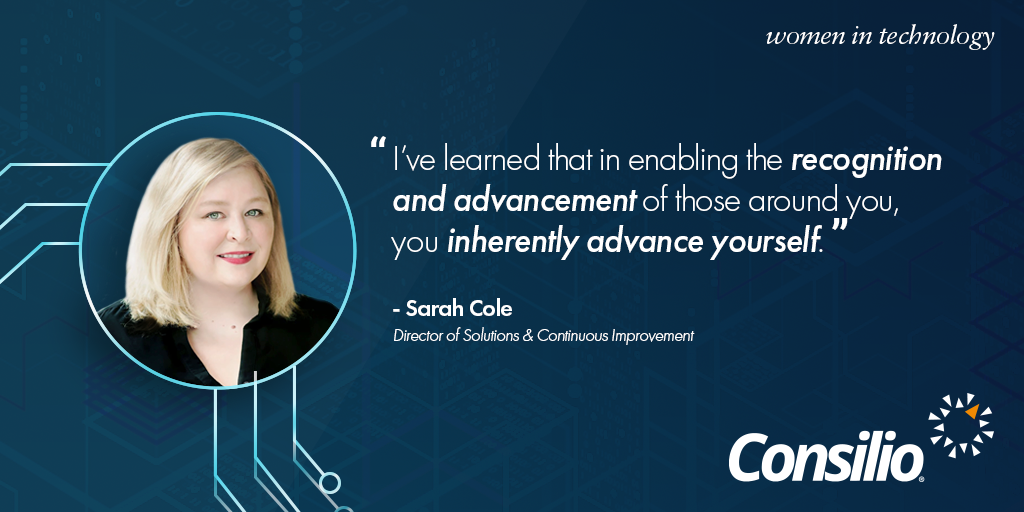This blog is part of our on-going Women in Technology series.
Sarah Cole is the Director of Solutions Consulting and Continuous Improvement with more than 12 years of experience in eDiscovery. Sarah earned her undergraduate degree in Psychology from SUNY Oswego, her JD from the University of Illinois – Chicago’s John Marshall Law School, and currently holds a Relativity Master certification. She also belongs to the New York chapter of Women in eDiscovery.
How did you get to where you are today?
By accident. I was an enthusiastic law school student, who happened to graduate at the beginning of a recession. I worked briefly in class action law and began taking contract review work and managing document reviews.
After three years of leading contract review teams, I accepted a role as an eDiscovery Project Manager. Very quickly, I recognized that the ability to effectively perform my role required a more thorough understanding of the discovery process and technology. I dedicated most of my free time to learning the technical aspects of discovery including various technologies and techniques.
Less than a year after starting my Project Management role, I left to pursue a temporary role as a Hosting Analyst. Many of my peers were quick to question this decision. While they viewed the analyst role as a step backward in my career, I regarded it as an opportunity. I approached each day as a Hosting Analyst role like school, fully immersing myself in the technology and materials and learning from my colleagues. Not only did I achieve a level of mastery of the technology, but I gained the perspective of an operations role and an appreciation for the process.
The knowledge and confidence I took away from six months in this role, easily propelled my career five years ahead. I accepted a role in New York as a Project Manager, this time, bringing with me Review, Project Management, and Operations experience. My new-found knowledge positioned me as an authority on various technologies and provided me with a springboard to future advancement.
Has gender played a role in your career?
Early in my career, I was hyper-focused on taking strategic actions to advance my career. Aware of the realities of gender bias in our culture, corporate and otherwise, including the inaccurate perception that women were less capable leaders, I knew I’d have to work harder than my male colleagues for similar recognition. For years, I spent my weekends studying our industry, techniques, and technology until I was able to position myself as the authority on these technologies among my peers.
While technology came naturally with the appropriate time, navigating the social and political aspects of my career proved more challenging. I immersed myself in the deluge of early 2010’s women’s leadership literature a la “Lean In”. I also began to adopt what I perceived to be masculine leadership characteristics. This leadership approach may have contributed to my ability to stand up for myself, but it also reinforced a patriarchal construct of success. At the time, I falsely attributed my successes to this approach rather than the technical expertise I worked hard to develop over the prior years. Upon recognizing the stifling impact of these characteristics as a recipient, I re-examined my approach. I’ve since worked conscientiously present in a manner more genuine to myself and encouraging the contributions of my colleagues.
As for my hyper-focus on advancement, I’ve learned that in enabling the recognition and advancement of those around you, you inherently advance yourself. I continue to look for opportunities to support my colleagues, regardless of gender. However, I place extra emphasis on lifting women whose talents are undercut by the qualities typically associated with femininity.
What advice would you give to women entering the industry?
Don’t be afraid to self-promote. Forward that email of praise on to your boss. Contrary to how women are socialized, self-promotion does not equate to bragging. Be proud of your hard work and make sure that it’s recognized.
Seek out senior colleagues you admire that will be your champion. In turn, make sure to identify junior colleagues for whom to champion forward. To that end, don’t forget to promote the efforts of your colleagues. These seemingly small acts contribute to a corporate culture that recognizes and rewards hard work.
